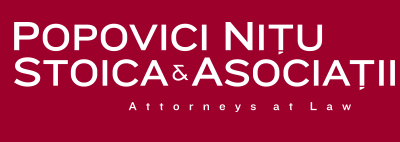- About Us
-
Expertise
- Banking & Finance
- Capital Markets
- Competition & Antitrust
- Corporate & Commercial
- Data Privacy
- Employment & Pensions
- Energy & Natural Resources
- Gambling & Betting
- Healthcare & Pharmaceuticals
- Insurance
- Intellectual Property
- International Arbitration
- Litigation
- Mergers & Acquisitions
- Project Finance/PPP, Concessions & Infrastructure
- Public Procurement
- Real Estate
- Restructuring & Insolvency
- Sports Law
- Tax
- Telecommunications, Media & Technology
- Transports & Logistics
- White Collar Compliance & Defense
- Our team
- Careers
- Publications
- News and Press
- Contact
Articles
OCCUPATIONAL PENSIONS
Awaited with interest by the main actors from the market of the private administrated pensions, also contemplated as a viable alternative for improving the pensions system, as well as for attracting more capital market financing, the Law no. 249/2004 regarding the occupational pensions has been finally passed by the Parliament and shall come into force on January 1st, 2005.
The new facultative mechanism is based on payment by the employees and employers under the occupational pensions schemes authorized by the Insurance Supervisory Commission (ISC) of certain periodical contributions to the occupational pensions fund, managed by a specialized authorized company. Due to causes pertaining to objective limits applicable to the present article, our presentation shall be focused on the main guidelines directing the organization and functioning of the occupational pensions system, such as set forth by the Law no. 249/2004.
As a principle, the right to propose the occupational pensions scheme should be exercised by the employer, together with the union (or the employees’ representatives, as the case may be), and must be concretized in the collective bargaining agreement or by a specific agreement. In case of lack of the collective bargaining agreement or union, the scheme may also be proposed only by the employer, alone or in association with other employers, with the consultation of the employees concerned.
The occupational pensions fund must have the prior authorization of the ISC, authority designated to exercise extended regulating, coordinating and controlling powers over all the entities involved in the area of occupational schemes. The fund shall be set up by civil partnership agreement, concluded among all of the participants to the respective occupational scheme, in accordance with the regime provided by the Civil Code and the incident specialized legislation, with the minimal number of participants exceeding 100.
Access to the occupational pensions schemes is optional, being open to all employees meeting the eligibility criteria stipulated by the specific documents regulating the scheme, such as approved by the ISC.
Adhesion to the occupational scheme should be ascertained by a written agreement, executed directly between the natural person and the managing company, including provisions regarding main features of the occupational scheme, management agreement and related risks, in line with the applicable legislation and the ISC norms.
Financial resources of the occupational pensions fund shall be collected from the contributions received as well as from the amounts resulting from the further investment of the contributions, with the observance of the rules detailed by the Law no. 249/2004 and future implementation norms.
As concerns the fiscal deductibility of the contributions from the payers’ standpoint, element which should have been regarded as main incentive at this stage, it has been admitted only up to the limit of EUROS 200 per year (in ROL equivalent) from the annual wages of the employees. The same deductibility limit would apply to the employer, annually, for the expenses made in respect of each employee’s contributions participating to an occupational scheme.
Special rules protect the legal regime of the account accumulated by each participant. Thus, the participant is the owner of the personal asset from its account, asset which cannot be subject to enforcement procedures, assignment (sale) or pledge. Moreover, the personal assets cannot be undertaken by the employer, union or the appointed custodian, as the respective deeds of transfer would be null and void by the operation of law.
The right to receive the occupational pension is activated, mainly, at the time of the retirement age limit applicable to the public system, provided that the employee would have paid at least 60 monthly contributions to the occupational fund. Further conditions and effective payment mechanism of such pensions shall be set by the ISC norms.
The pensions fund managing company can be organized solely as a joint-stock company, with a minimum share capital amounting to EUROS 2 million, fully subscribed and paid in cash, upon the incorporation. The managing company is subject to authorization procedures conducted by the ISC before the setting-up (prior authorization), as well as subsequent to the incorporation, before the commencement of the management activities (operational authorization), but also to strict operational rules, under the surveillance of the same authority (i.e. ISC).
Envisaged as a necessary step for the desired restoration of the pensions system and increase of the opportunities for satisfactory pensions, the legislative development achieved by the passing of the Law no. 249/2004 should receive the practical acknowledgement of its efficiency and progress which should be promoted by this enactment.










